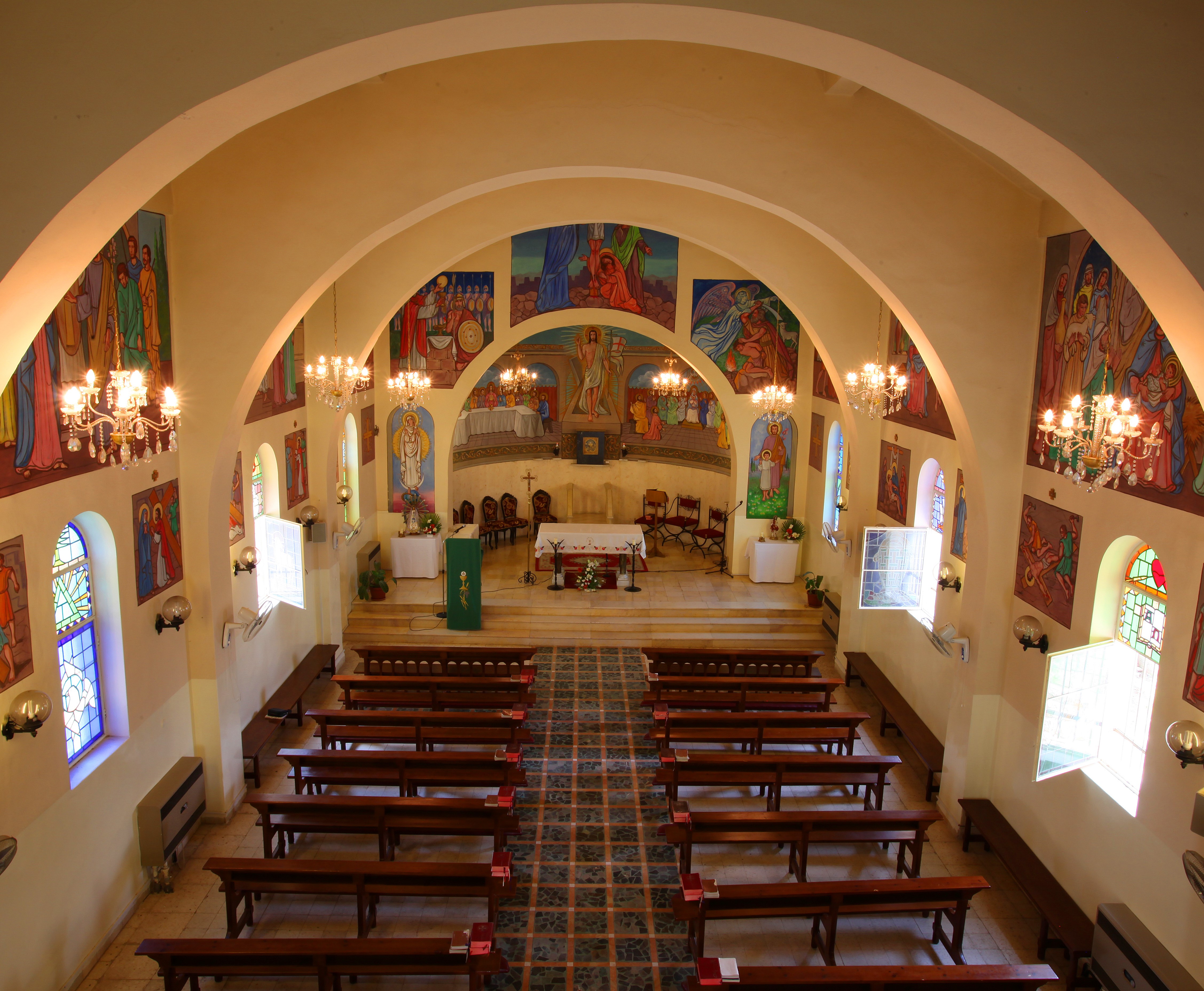

Believers
head to the shrine of Our Lady of the Mountain in the city of Anjara in Ajloun
Governorate, northern Jordan, in honor and supplication to the Virgin Mary,
Mother of God and intercessor, savior from adversity and distress.
The
Shrine and Church of Our Lady of the Mountain are among the five sites approved
by the Vatican for Christian pilgrimage in Jordan in 2000.
On the
third Friday of June, a celebration is held annually at the Shrine of the
Virgin Mary, Our Lady of the Mountain. His Beatitude the Latin Patriarch of
Jerusalem and Catholic bishops preside over the celebration.
The
pilgrims' visit begins a week before the annual June celebration and continues
for a week after it, and on the main day the number of attendees exceeds two
thousand pilgrims, noting that the Shrine of Our Lady of the Mountain is
considered the national shrine for Christians in Jordan.
Pilgrims
see the statue of “Our Lady of the Mountain,” which is made of very hard acacia
wood. It is covered with a layer of gypsum and is expected to be between 150
and 200 years old. It was carved in Italy.
This
statue represents a wonderful view of the Immaculate Heart carved on the chest
of the statue, and the Virgin carrying the child Jesus in her arms, pointing
with his hand to the Immaculate Heart of the Virgin, while the name Our Lady of
the Mountain goes back to the geographical nature on which this shrine is
located in the famous Gilead mountain range.
In
1932, Father Angelo Forestoa, the parish priest of Anjara, saw the statue of
Our Lady of the Mountain in the Latin Patriarchate in Jerusalem, and wanted it
for his parish. He brought it and placed it first in a small church that was a
house for priests. Then a small cave was built in the monastery’s courtyard,
and it remained in this state until a year ago. 1970, when Father Youssef
Al-Namaat built and expanded the shrine to accommodate a larger number of
visitors.
The
Shrine of Our Lady of the Mountain witnessed an update in 2009, and the statue
was restored by the English sculptor Ian Knowles, who painted four icons
representing the mysteries of the Rosary.
When
the visitor arrives at the shrine, he sees two large galleries in the external
building of the shrine, and these two galleries cover those icons made of
reinforced wood. The artist used natural materials that they used to paint at
the time of Jesus Christ, especially in Palestinian art, and gold foil as a
basis for the paintings and clothes of the Virgin. In this way, the artist
wanted The drawing must be in the old Palestinian style.
The
Shrine of Our Lady of the Mountain receives pilgrims throughout the year.